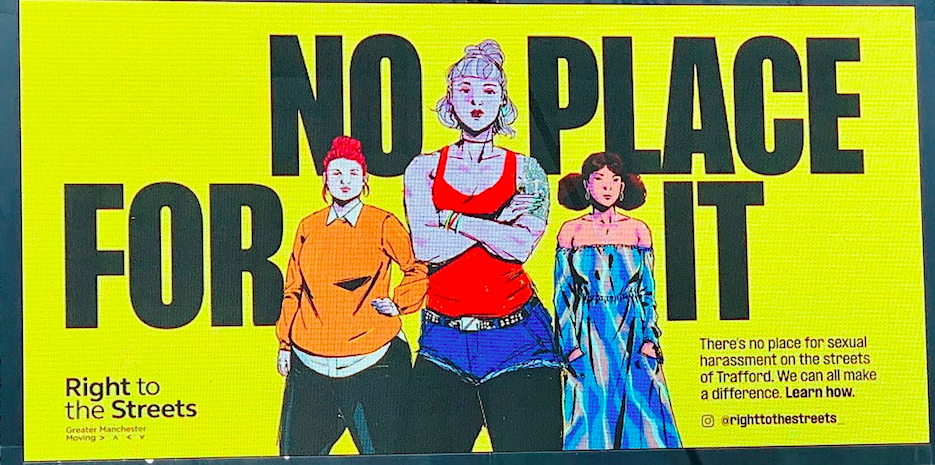Welcome to the third instalment of our blog series showcasing Open Data Manchester’s decade of data-driven change. In this series, we’re diving into eight case studies that demonstrate the real-world impact of our projects.
Today, we’re exploring our work for ‘Right to the Streets’, a collaborative project which aimed to create safer and more welcoming public spaces for women and girls in North Trafford.
Right to the Streets: A Community-Led Approach to Urban Safety
Gender-based violence and harassment in public spaces remain significant issues in many urban areas. The challenge was to develop a community-led approach to assess and improve the safety of streets, parks, and public spaces, with a particular focus on the experiences of women and girls.
Our User-Centred Approach
From October 2022 to September 2023, Open Data Manchester partnered with GM Moving and Trafford Council on this Home Office-funded project. Our methodology included:
- Initial community survey: We gathered preliminary data to gauge interest and identify key issues;
- Walkabout workshops: We conducted 14 workshops involving over 50 participants in different areas of North Trafford;
- Place Review tool development: We created and refined a community-led tool for assessing public spaces;
- Feedback sessions: We held usability tests and gathered feedback on the Place Review tool;
- Data analysis and mapping: We analysed the collected data to identify patterns and areas for improvement.
We engaged directly with the community, using participatory methods to gather insights on the lived experiences of women and girls in public spaces.
Key Outcomes
Our collaborative process resulted in several significant outcomes:
- Development of a community-led Place Review tool, tailored to local needs and concerns.
- Creation of six participant personas representing diverse experiences in public spaces.
- Identification of common themes affecting women’s and girls’ safety, including lighting issues, pavement conditions, and community belonging.
- Creation of a replicable resource for community-led urban assessment.
- Contribution to the wider Right to the Streets campaign and interventions.
Impact
The Place Review tool and collaborative methodology represent a shift from traditional urban assessment methods, placing the affected community at the heart of the process. As one participant noted:
“I think this workshop and the chance to talk is great!”
The project has empowered residents to identify and advocate for local improvements, fostering community engagement and a sense of belonging. It has also contributed to the larger £490,448 Home Office Safer Streets Fund project, providing a framework for ongoing community-led assessment and advocacy.
Eve Holt, Strategic Director at GM Moving, highlighted the project’s impact:
“Open Data Manchester helped ensure that everything we did through the Right to the Streets partnership embedded the lived experiences of women and girls and grew local community agency and power.”
Looking Ahead
The Right to the Streets project demonstrates the power of community-driven approaches in creating safer, more inclusive public spaces. As cities continue to grapple with issues of public safety and inclusivity, approaches like this that centre community voices and experiences will be crucial in creating truly welcoming urban environments for all.
Read more posts in this series, where we explore more impactful ODM projects. Together, these case studies showcase our commitment to using data and user research for positive change and building a more informed, ethical, and data-empowered future.
If you want to learn more about how ODM can support your organisation’s data strategy, get in touch.

